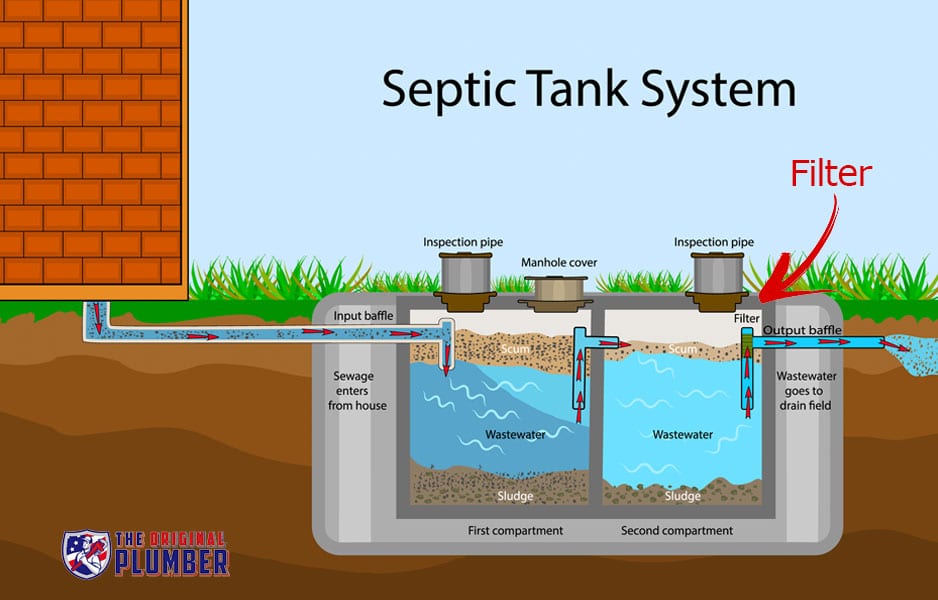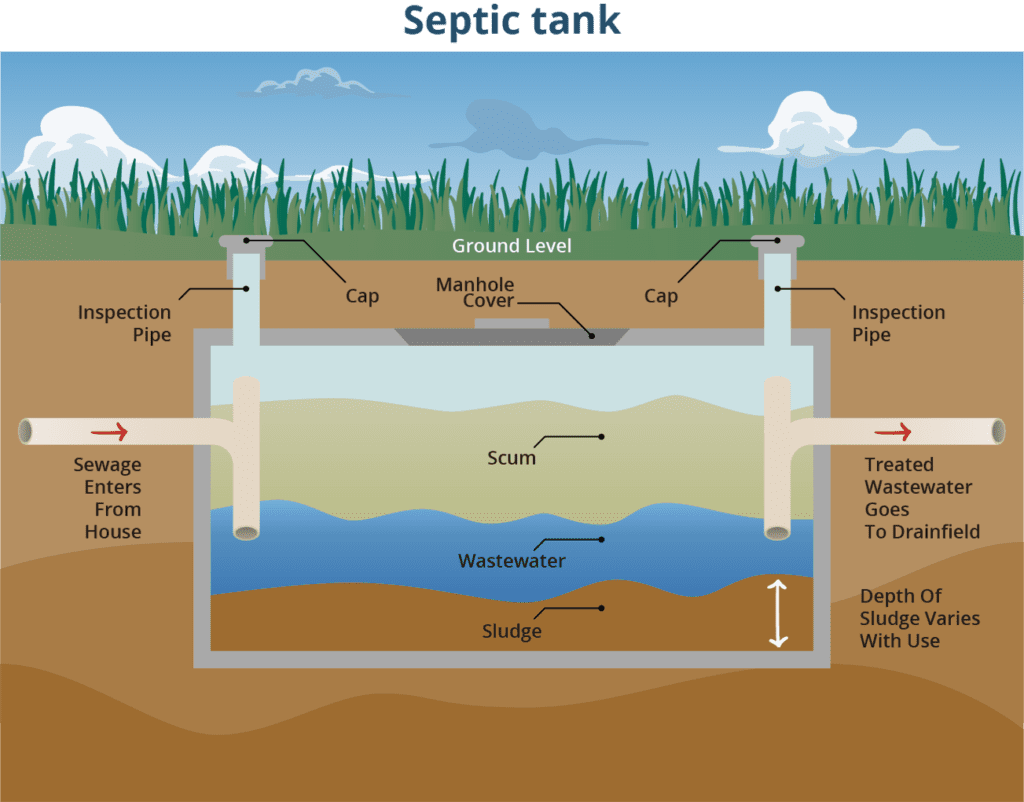If you have a septic tank, you may have wondered if it needs anything added to it to keep it functioning properly. Well, the answer is not as simple as a yes or a no. While some additives claim to enhance the performance of your septic system, experts are divided on their effectiveness. In this article, we will explore the pros and cons of adding substances, such as bacteria-based products and chemicals, to your septic tank. By understanding the potential benefits and risks, you can make an informed decision on whether or not to introduce anything into your septic tank.

Introduction
If you own a septic tank, you know the importance of its proper maintenance and care. While septic tanks are designed to efficiently process and treat wastewater from your home, there are certain substances that can be added to enhance their performance and minimize potential issues. In this article, we will explore the benefits of adding substances to your septic tank, the types of substances that can be used, environmental considerations to keep in mind, common misconceptions surrounding septic tank additives, and proper maintenance and care techniques. By the end of this article, you will have a comprehensive understanding of how to optimize the performance of your septic tank and ensure its longevity.
Benefits of Adding Substances to Septic Tank
Improved Breakdown of Solid Waste
One of the main benefits of adding substances to your septic tank is the improved breakdown of solid waste. By introducing specific substances, such as bacterial additives or enzymes, you can help accelerate the natural degradation process of various organic materials within the tank. This enhances the separation of solids and liquids, allowing for more efficient treatment and preventing unnecessary build-up that could lead to clogs or other issues.
Prevention of Odors
Another advantage of utilizing septic tank additives is the prevention of unpleasant odors. Septic tanks can sometimes generate foul smells due to the decomposition of organic matter. However, by incorporating substances that neutralize or mask odors, you can ensure that your septic system remains odor-free. This can greatly enhance the overall comfort and well-being of everyone in your household.
Enhanced Bacterial Activity
Bacteria play a crucial role in the decomposition and treatment of wastewater within septic tanks. Adding substances that contain beneficial bacteria can help boost the microbial activity in the tank, leading to more efficient breakdown of waste. These bacteria help break down solid waste into smaller particles, making it easier for the system to handle and reducing the risk of blockages or overflows.
Reduced Risk of Clogs
Clogs in septic systems can cause significant disruptions and expensive repairs. By incorporating substances that promote the breakdown of solid waste and inhibit the accumulation of debris, you can help minimize the risk of clogs. Properly functioning additives can keep your septic pipes and the drain field clear, ensuring smooth and uninterrupted operation of your septic system.
Minimized Groundwater Contamination
Septic tanks are designed to treat and process wastewater before releasing it into the surrounding environment, specifically the soil and groundwater. Adding substances that aid in the degradation of waste can help improve the quality of the effluent discharged from the tank. This can minimize the potential contamination of groundwater and reduce the environmental impact of your septic system.

Types of Substances That Can Be Added
Septic Tank Additives
There are various septic tank additives available on the market that are specifically formulated to enhance the performance of your septic system. These additives often contain a combination of bacteria, enzymes, and other beneficial ingredients that help break down waste, prevent clogs, and maintain a healthy balance of microorganisms in the septic tank. It is important to choose additives that are compatible with your specific septic tank system and follow the manufacturer’s instructions for optimal results.
Bacteria and Enzymes
Bacterial additives and enzymes are commonly used substances that can be added to septic tanks. These additives introduce beneficial bacteria and enzymes that naturally occur in the digestive process of waste breakdown. By supplementing the microbial population within the tank, these substances enhance the decomposition of organic materials and promote a more efficient septic system.
Household Products
Certain household products can also be used as septic tank additives. For example, baking soda and vinegar can help regulate the pH balance in the tank and promote the growth of beneficial bacteria. However, it is important to note that while these products can provide some benefits, they should not be relied upon as the sole means of maintaining a healthy septic system.
Biological Additives
Biological additives, such as specialized cultures of bacteria and enzymes, can be introduced to the septic tank to aid in the breakdown of waste. These additives are designed to strengthen the existing microbial ecosystem in the tank, ensuring optimal performance and preventing the accumulation of solids that can lead to blockages and system failures.
Chemical Additives
Chemical additives are another type of substance that can be added to septic tanks. These additives are typically used to address specific issues, such as excessive odors or solid waste accumulation. However, it is important to exercise caution when using chemical additives, as they can disrupt the natural balance of bacteria within the tank and potentially harm the environment if not used properly.
Environmental Considerations
Impact on Soil and Groundwater
When considering the addition of substances to your septic tank, it is essential to evaluate their potential impact on the soil and groundwater. While some additives can improve the performance of your septic system, others may have adverse effects on the environment. It is crucial to choose additives that are environmentally friendly and biodegradable to ensure minimal harm to the surrounding ecosystem.
Regulations and Guidelines
Before adding any substances to your septic tank, it is important to familiarize yourself with local regulations and guidelines regarding septic system maintenance. Some jurisdictions have specific restrictions or recommendations regarding the use of additives. Consulting with local environmental agencies or septic system professionals can provide you with valuable information to ensure compliance with relevant regulations.
Potential Contamination Risks
Improper use or selection of septic tank additives can pose contamination risks to the surrounding environment. Additives that contain harmful chemicals or that disrupt the natural balance of bacteria within the tank can lead to water pollution or damage to the soil. Carefully reading and following the instructions provided by the manufacturer of the chosen additive is essential to minimize any potential contamination risks.
Effects on Local Ecosystems
The substances added to septic tanks can have unintended consequences for local ecosystems if not used responsibly. Chemical additives, in particular, can harm beneficial bacteria and flora in the soil and negatively impact the natural balance and biodiversity of the area. Therefore, it is crucial to select substances that prioritize the health of the environment and avoid introducing potentially harmful substances into your septic system.

Common Misconceptions
Septic Tanks are Self-Sufficient
While septic tanks are designed to function without constant maintenance, they are not entirely self-sufficient. Regular inspections, pumping, and proper care are necessary to ensure the optimal performance and longevity of your septic system. Adding substances to your septic tank can complement these maintenance practices and contribute to its overall health.
All Additives Are Beneficial
Not all septic tank additives are beneficial or necessary. Some products on the market make lofty claims without providing substantial benefits to your septic system. It is important to research and choose additives that have been proven effective and are compatible with your specific septic tank system. Consulting with septic system professionals can help you make informed decisions regarding the use of additives.
Regular Pumping is Unnecessary
Regular pumping is an essential part of septic tank maintenance, even if you are utilizing septic tank additives. While additives can help break down waste and prevent clogs, they do not eliminate the need for routine pumping. Over time, solid waste will accumulate in the tank, and only professional pumping can completely remove these solids and ensure the optimal functioning of your septic system.
Chemicals Ensure Instant Results
Contrary to popular belief, chemicals added to septic tanks do not guarantee instant results. The breakdown of waste and the stabilization of your septic system require time and the proper functioning of natural processes. Additives, whether biological or chemical, should be used as complementary measures to support the natural functioning of your septic tank, rather than as a shortcut to immediate results.
Proper Maintenance and Care
Adhering to Manufacturer Guidelines
When utilizing septic tank additives or any other substances, it is important to carefully read and follow the manufacturer’s guidelines. Each product may have specific instructions for usage, dosage, and frequency of application. Proper adherence to these guidelines will ensure the effectiveness of the substances and minimize any potential risks to your septic system.
Regular Inspection and Pumping
Regular inspection and pumping are vital aspects of septic tank maintenance. Inspections should be conducted on a routine basis to identify any potential issues or signs of malfunction. Pumping should be scheduled periodically, depending on the size of your tank and the household usage. These routine maintenance tasks, combined with the addition of suitable substances, will help maintain the optimal performance and longevity of your septic system.
Conservation and Water Efficiency
Conservation and water efficiency are key factors in the proper care of your septic system. By reducing water consumption, you can prevent your septic tank from becoming overwhelmed and maintain a healthy balance of waste and water within the tank. Simple measures such as fixing leaks, using water-saving devices, and adopting mindful water usage habits can greatly contribute to the longevity and efficiency of your septic system.
Proper Disposal of Household Waste
Proper disposal of household waste is essential to the well-being of your septic system. Certain items, such as fats, oils, grease, diapers, and non-biodegradable materials, should never be flushed or disposed of down the drain. These substances can clog your pipes and septic system, leading to costly repairs and potential damage. Educate yourself and your household members on proper waste disposal practices to minimize the risk of system failure and prolong the life of your septic tank.

Conclusion
In conclusion, adding substances to your septic tank can provide numerous benefits, including improved breakdown of solid waste, prevention of odors, enhanced bacterial activity, reduced risk of clogs, and minimized groundwater contamination. However, it is important to choose the right substances and use them responsibly to minimize any potential environmental risks. Regular maintenance and care, adherence to manufacturer guidelines, and proper disposal of household waste are vital for the optimal functioning and longevity of your septic system. By implementing these practices, you can ensure a healthy and efficient septic tank that will serve you and the environment well for years to come.
